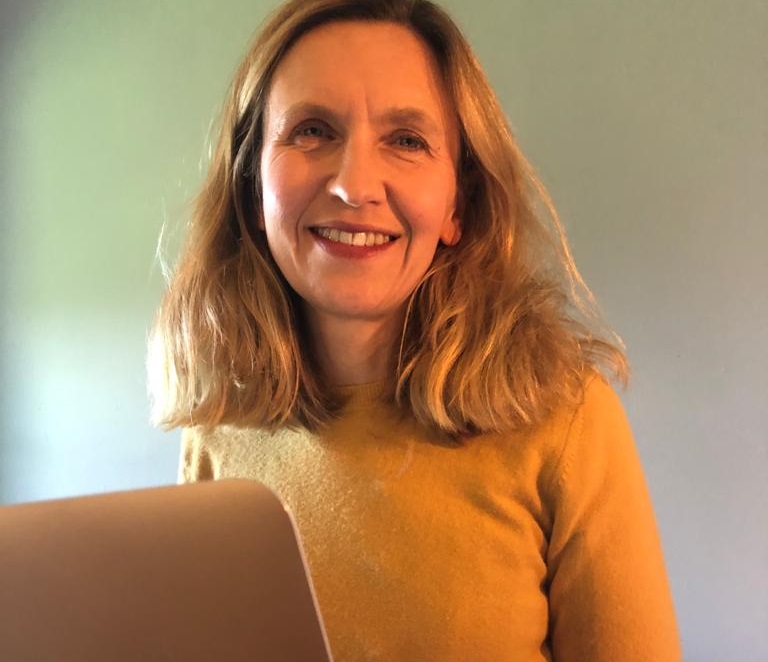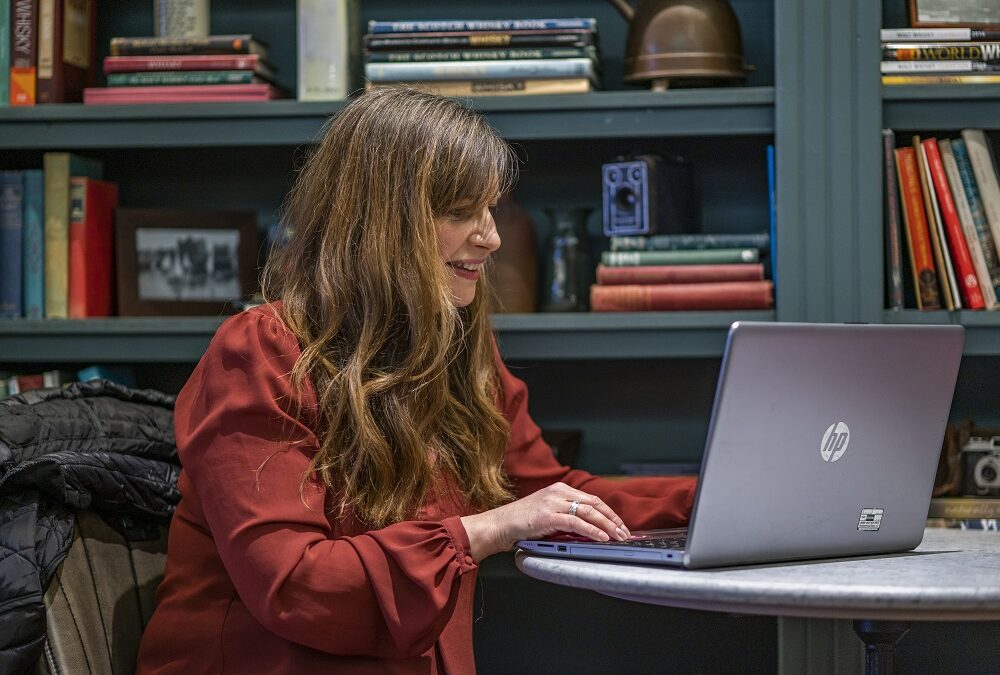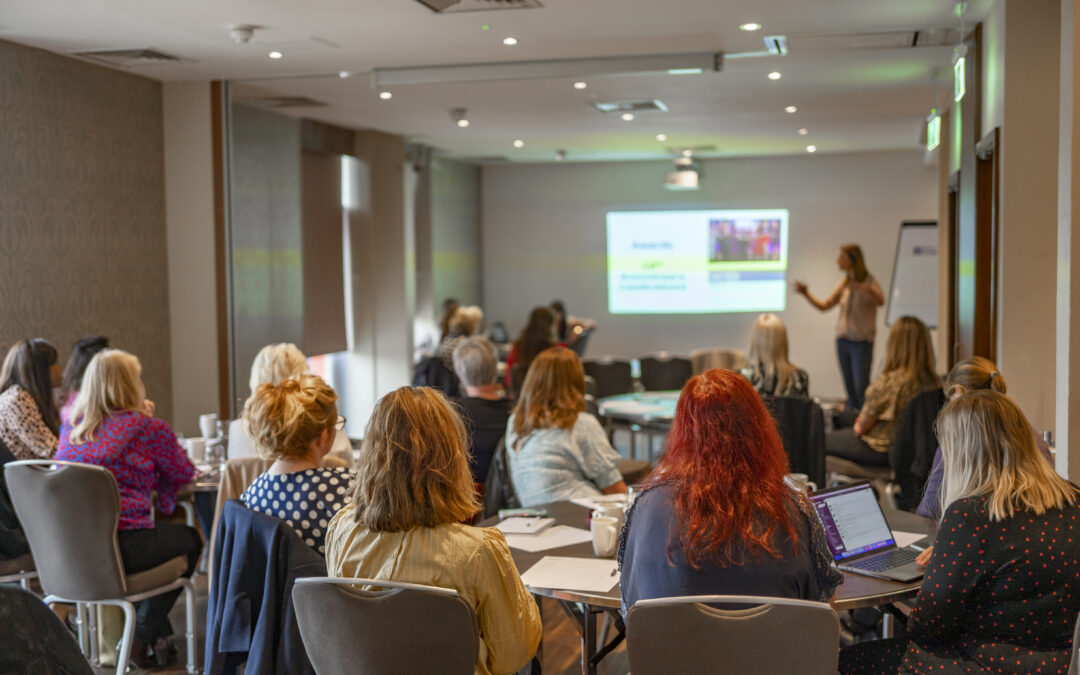Emma Reid is an employment lawyer, WES ambassador and occasional telly presence.
Since setting up Ergo Law with my business partner nearly 7 years ago, I’ve been asked to speak on STV several times to give a professional view on employment law issues in the news. Just recently, I was invited to the STV Expert Voices session held at the STV studios in conjunction with WES to help encourage others to step in front of the camera.
I was asked by STV reporter Kaye Nicolson about my tips and experience being an ‘expert voice’ on TV.
As anyone who has set up their own business will be able to identify with- sometimes the best approach is not to think too hard about an opportunity but say ‘yes’, have faith in your ability and put on your power shoes.
The first time I was asked to go on STV I received a call at 5 p.m. to go into the studio for a live show later that night at 10 p.m.. I said ‘yes’ before my head could gather its thoughts sufficiently to say ‘no’ and I have learned a lot since that first appearance about being asked to present a professional opinion in front of the camera.
Here is what I have found:
- Going into the STV studio is a blessing- you don’t need to worry about lights, positioning, make-up or your six year old child bursting through the door behind you. Whilst it might feel more intimidating than the thought of being interviewed remotely via your laptop camera, it’s a fantastic opportunity to leave many aspects of your appearance to the experts.
- Your interviewing journalist will want to get the best out of you and help you to understand what they are looking for. I usually ask them for example questions so that I can outline a response.
- Don’t over-prepare. You know your area of expertise already. I try not to write down or prepare answers that are detailed or technical so that I don’t find myself stumbling over words if I go ‘off script’.
- Speak your answers out loud. You are being asked to talk out loud about your knowledge so the best practice is to do exactly that. If you can’t arrange for a colleague or family member to ask you questions so that you can respond verbally, then you could video yourself on your phone. I have found this really helps me to identify habits which I am otherwise not conscious of (I close my eyes when I am thinking, I speak quickly) and try to manage them on screen .
- Think ‘smile’ (hard when you are talking about legislation or ‘hard’ or technical matters) but even if your mouth is not smiling, your face will convey it.Ask what caption can be written (it’s fantastic, but not always possible or appropriate, to have your business name stated when you speak).
- Remember that the journalist is there on your side to help you be your best. They are not trying to catch you out or make a story about what you have said. They are looking for your professional opinion to contribute to and enhance their report and will work with you to get the best possible responses out of you.
- Whilst it might feel scary at first, you’ll look back and be glad you took the plunge- I always remind myself of the mental list of intimidating things I have done in life (driven in Africa, cooked a Christmas dinner, set up a business), and appearing on STV does not even make the cut!
Kaye Nicolson is a reporter on STV News at Six and Scotland Tonight.
Here’s an insight into what Kaye and other reporters are looking for:
- Interviewees really help to bring a story to life. I’m always looking for a variety of voices to help explain the story in an engaging, conversational way: we want to hold the audience’s attention.
- An ideal interviewee is someone who has a natural, conversational style and tone – breaking the subject down so that the audience can understand. They will speak clearly, avoiding jargon and keeping things simple. Remember we’ll often only use a small soundbite – so interviewees should avoid saying things like “as I said earlier”, as it’s tricky for us in the edit.
- Obviously it depends on the story – but for, say, a business story about the regeneration of a town centre, we want someone who can give insight and put a complex news line into context, in simple terms that anyone watching could understand. So to find a suitable interviewee, there are all sorts of avenues – from Twitter, to a contact you’ve made previously, to a press office or PR firm.
- My main message would be just to put yourself out there – trust in the fact we’re coming to you because you have the insight and knowledge we need to tell the story. And if there’s a story you think we should be covering, or that you think you could bring a new voice to, let us know! Relax, we don’t bite and usually once you’re in the swing of it I bet you’ll enjoy the experience!
Kaye’s handy TV interview tips:
- Remember you are the expert – we’re coming to you because you’re knowledgeable about the subject; we’re not trying to catch you out.
- Keep it simple, take your time and relax.
- For a news package, an interview clip of only about 20 seconds will be used – so try to keep your answers succinct and easy to understand.
- Try to avoid saying things like “as I said earlier” or “like I just said in my last answer”, and don’t use the reporter’s name – the viewer won’t have heard the rest of the interview, and it’s not always the person you’re speaking to who will put the story together.
- A typical TV interview is pre-recorded so you are always welcome to stop and start again if you feel you want to do an answer again – or even pause to collect your thoughts before answering.
- Lists are fine but try to avoid saying “firstly, secondly” as it’s difficult to edit and doesn’t flow too well.
- At the end of questioning, many reporters will ask if there is anything you want to add. Make the most of this opportunity to recap the main points you want to get across.
- Try to explain things in simple terms, so that viewers with no prior knowledge can understand. Avoid jargon or terms which the average person might not be familiar with – news is conversational, we want you to be too.
- When you answer a question, try to answer it in a full sentence – ie. reporter: “what are the main challenges?” interviewee: “the main challenges are…”
- Try to relax and ENJOY the experience!
Written by Emma Reid, an employment solicitor and co-founder of specialist employment law firm Ergo Law and STV reporter, Kaye Nicolson.









